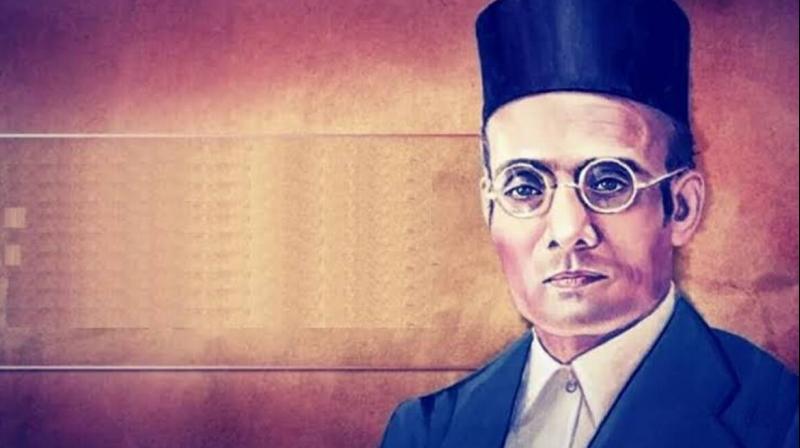Pavan K. Varma | Do not erase legacy of Savarkar, the reformer

As the spiral of competitive Hindu politics escalates, the basics of Sanatan Dharma, Hindu philosophy, myth, tenet, reform within Hinduism, and the assessment of personalities hailed as the votaries of Hindu revivalism, are being bandied about in the most indiscriminating manner. This increasing intellectual illiteracy in our country can be quite exasperating. Every debate is reduced to a black and white polarity, making it a dialogue between those who don’t know and those who don’t wish to know. The legacy of Vinayak Damodar Savarkar is a case in point.
For reflex ‘secularists’ he is simplistically a Hindu fanatic who in his polemic, Essentials of Hindutva, published in 1923, called for a Hindu Rashtra, excluding non-Hindus for whom Bharat was not pitrbhumi, the land of one’s ancestors, and divyabhumi, the holy land. Even his status as a freedom fighter and patriot was consequently rejected.
No attempt was made to contextualise his views in his times. Mahatma Gandhi was then supporting the pan-Islamicist Khilafat Movement, to which Savarkar was vehemently opposed, as were many within the Congress, including Ambedkar. Savarkar was incensed too by the attempts by Gandhi and the Congress to appease Muslims by downplaying the horrific violence against Hindus by the Moplahs in Kerala. Statements by some Muslim leaders about the incompatibility of Muslims and Indians, and the need, therefore, for Muslims to explore a future separate from the “dominance” of Hindus, also influenced him.
There can, of course, be no condonation of Savarkar’s racist argument. But it is quite likely that reacting to specific events at that time he overreacted. In fact, Savarkar himself later dilutes his extremism when he writes: ‘‘We are trying our best, as we ought to, to develop the consciousness of and a sense of attachment to the greater whole, whereby Hindus, Mohammedans, Parsis, Christians and Jews would feel as Indians first and every other thing afterwards’’ (emphasis mine). Significantly, Savarkar never joined the RSS.
That Savarkar was a patriot was never in doubt. His burning passion was to see an India free from British rule, and he paid a very high price for the courage of his convictions. Gandhi, Sardar Patel and Bal Gangadhar Tilak petitioned the British government for his release. It is true that towards the end of his 11-year term in the horrific jail conditions of Kaala Pani in the Andamans, he requested the British to grant him amnesty. However, for a man who had suffered so much, there was nothing unpatriotic about this. A great many freedom fighters did the same, and even the Congress at that time was only seeking greater autonomy under British rule. In recognition of his revolutionary patriotism, Prime Minister Indira Gandhi released a postage stamp in his memory in 1970.
If Savarkar’s critics need to see matters in a more balanced manner, his followers, especially the RSS (born in 1925), are overly — and perhaps deliberately — focused only on one aspect of his legacy: Hindu Rashtra. The fact though is that Savarkar is far more a social reformer, seeking to make Hinduism into a modern and progressive religion and ridding it of some of its oppressive distortions. Although born into an orthodox Chitpawan Brahmin community, he was resolutely against the caste system, and the practice of untouchability. His dismissal of scriptural injunctions to uphold what needed to change was equally strong.
Savarkar identified seven fetters that Hindus needed to unshackle themselves from. These, in his own words, are:
Vedoktabandi: The exclusivity of access to Vedic literature and rituals only to the Brahmin community must be immediately dissolved.
Vyavsayabandi: An individual’s choice of profession must be left entirely to him or her, based on their aptitude and capability.
Sparshbandi: The practice of untouchability is a sin, a blot on humanity, and nothing can justify it.
Samudrabandi: The day we forbade crossing the seas to go to foreign lands and deemed it a loss of caste heralded our collapse on various fronts
Shuddhibandi: The folly of disallowing reconversions to Hinduism is a self-destructive one… I have nothing against those who convert to another faith by sheer conviction.
Rotibandi: Unshackling ourselves from this one thoughtless fetter — the belief that that one loses one’s caste through inter-caste dining — can liberate us as a society.
Betibandi: The intemperate practice of abolishing inter-caste marriage has caused our Hindu society a lot of harm… Instead of demonising such marriages, they should be honoured.
In pursuing his reformist convictions, Savarkar was prepared to invite the wrath of orthodox Hindus. He was against cow worship, stating fearlessly: “Elevating an animal that eats garbage and indiscriminately passes excreta anywhere and everywhere to the status of a goddess is in my view insulting to both humanity as well as divinity.” The same iconoclastic spirit informed his views on food and meat. “Religion is in the heart, the soul, the spirit; not the stomach! There is no food that is prohibited. Anything that is healthy, nutritious and tasty must be generously and merrily indulged in…”
It is significant that Savarkar never joined the RSS. As his painstaking biographer, Vikram Sampath, writes, “Savarkar was a bundle of contradictions and a historian’s enigma. He simultaneously means many things to many people. An alleged atheist and a staunch rationalist who strongly opposed orthodox Hindu beliefs and the caste system and dismissed cow worship as mere superstition”, his most important legacy is his espousal of reform within Hinduism.
This aspect of Savarkar is conveniently ignored by his fervent but ill-informed acolytes today. The net result is that both his critics and his supporters exclusively focus, for their own vested interests, only on his initial avowal of Hindu Rashtra. That is a travesty of the truth.

